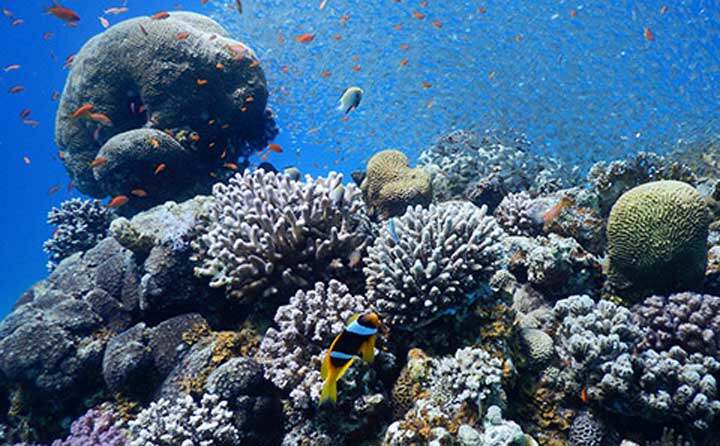A new study led by the University of Southampton has revealed why coral reefs can thrive in seemingly nutrient poor water, a phenomenon that has fascinated scientists since Charles Darwin.


The research shows that corals farm and feed on their photosynthetic symbionts – microscopic algae that live inside their cells. This vegetarian diet allows the corals to tap into a large pool of nutrients that was previously considered unavailable to them. Effectively, they are eating some of their symbiont algae to get the nutrition they need to survive.
Professor Jörg Wiedenmann, Head of the Coral Reef Laboratory at the University of Southampton, who led the study comments: “The question as to why coral reefs thrive in parts of the oceans that are poor in nutrients is known as Darwin’s Paradox of Coral Reefs and has inspired the discovery of several important processes that can help to explain this phenomenon. We can now add the missing piece of the puzzle and help to solve the long-running mystery.”
He continues: “When Charles Darwin set sail on the HMS Beagle, he considered himself a geologist and during his voyage through tropical seas, quickly became interested in where and why coral reefs are formed. Darwin correctly predicted how the subsidence of the Earth’s crust and the steady upward growth of corals interact to form vast reef structures. However, the biological mechanisms behind this vigorous growth remained unstudied.”
The study findings are published in the journal Nature.






































